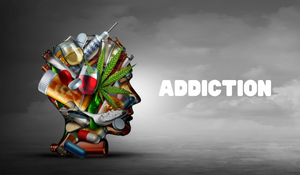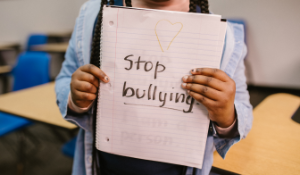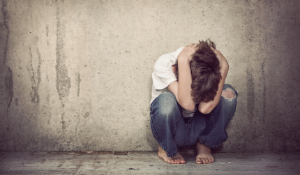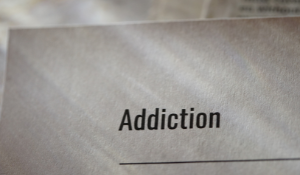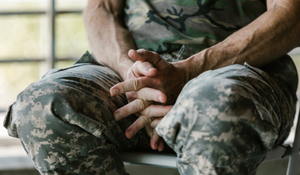In a recent study, 81% of teenagers between the ages of thirteen and seventeen reported experiencing more severe stress. Schools are working harder than ever to support their students by integrating social-emotional learning (SEL) into curricula, expanding the availability of mental health services, and enabling teachers to identify the signs of a student's emotional distress and collaborate with social workers or counselors to promptly resolve particular cases.
Let's take a look at how you can support the students' complete social and mental well-being.
Read More
Topics:
mental health,
education,
what social workers do
We recently interviewed a retired social worker who spent her entire 30-year career working with addicts and alcoholics in residential treatment centers. We were seeking insight into the drug and alcohol abuse epidemic that seems to be getting worse every year. The insights she shared rang with understanding, empathy, and a double dose of common sense.
Read More
Topics:
mental health,
what social workers do,
social issues
Addiction is a disease, not a crime. The American Society of Addiction Medicine recognizes addiction as “a treatable, chronic medical disease involving complex interactions among brain circuits, genetics, the environment, and an individual’s life experiences. People with addiction use substances or engage in behaviors that become compulsive and often continue despite harmful consequences.”
Read More
Topics:
mental health,
social workers,
what social workers do
According to The Sentencing Project, over the past four decades, the number of incarcerated women increased by more than 475%, rising from a total of 26,326 in 1980 to 152,854 in 2020. Also, over half (58%) of imprisoned women have a child under the age of 18.
Read More
Topics:
mental health,
social workers,
Adult Re-Entry
Bullying is a pervasive problem in schools across the United States. According to the National Center for Education Statistics, about one-third of students aged 12-18 reported being bullied during the school year. The most common type of bullying is verbal abuse, including name-calling, teasing, and making fun of someone. Other types of bullying include physical abuse, cyberbullying, and social exclusion.
Read More
Topics:
mental health,
education,
social issues
For young people, suicide is the third most common cause of death. Suicide can be avoided, though. Young people who are thinking about suicide usually show indicators of despair. Knowing about these symptoms can help friends, family, and educators act promptly and get the aid they require. Numerous social care providers are making an effort to deal with teen mental health difficulties and raise awareness that could be the difference between life and death. Let's shine some light on the subject and determine how we can work together to prevent teen suicide.
Read More
Topics:
mental health,
education,
social issues
As so often happens in our modern 24-hour news cycle the latest crisis pushes any ongoing crisis off the front page and out of public consciousness. COVID 19 and January 6th have all but eliminated the opioid addiction epidemic from our front-page view. However, the crisis has not gone away. Provisional data from CDC’s National Center for Health Statistics indicate that there were an estimated 100,306 drug overdose deaths in the United States during 12-month period ending in April 2021, an increase of 28.5% from the 78,056 deaths during the same period the year before. The new data documents that estimated overdose deaths from opioids increased to 75,673 in the 12-month period ending in April 2021, up from 56,064 the year before. Overdose deaths from synthetic opioids (primarily fentanyl) and psychostimulants such as methamphetamine also increased in the 12-month period ending in April 2021.
Read More
Topics:
Government,
mental health,
Covid-19/Pandemic
During the COVID-19 crisis, almost 9.6 million Americans lost their jobs. Searching for the right job is difficult, with continuous rejection and unpleasant interviews. Job-search stress has been connected to mental health problems like depression and anxiety. Fortunately, non-profit organizations are working to open new doors for unemployed people to help them find a job. Nonprofits that specialize in workforce development provide job seekers with the resources and training they require to find work and succeed. A startling number of individuals are now receiving assistance from nonprofits that focus on workforce development.
Let's explore how unemployment contributes to mental health concerns and how nonprofits assist job seekers in finding the right job.
Read More
Topics:
Nonprofit General,
mental health,
workforce development,
Covid-19/Pandemic
While serving their country, military personnel may encounter a variety of terrifying situation. Thousands of veterans have been left scarred by their experiences, leading to post-traumatic stress disorder (PTSD). Veteran's PTSD is a significant challenge and a serious issue, but many retired military personnel and their families are unaware of the diagnosis or where to seek treatment. Because PTSD has an impact on mental health and can be hidden, health professionals and other may find it difficult to assess its severity.
Let’s look at some tips and suggestions for assisting veterans and their families who are dealing with PTSD.
Read More
Topics:
Veterans Issues,
mental health,
social issues
Serving your country always comes at a cost, and the brave men and women who serve are well aware of this. Currently, there are nearly 18 million veterans in the United States. Most, if not all, of them report dealing with a variety of mental health issues. Veterans make up a sizable proportion of patients receiving treatment in the country. Regardless, many of them never receive the necessary counseling and assistance for their mental health issues. To assist veterans in overcoming their problems, let us first learn about the most common mental health concerns for veterans.
Read More
Topics:
Veterans Issues,
mental health



